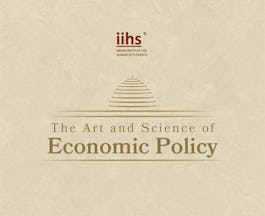Filter by
The language used throughout the course, in both instruction and assessments.
Choose the Public Policy Course That Aligns Best With Your Educational Goals

University of Michigan
Skills you'll gain: Problem Solving

O.P. Jindal Global University
Skills you'll gain: Data Analysis, Econometrics, Epidemiology, Finance, Leadership Development, Taxes

O.P. Jindal Global University
 Status: Free
Status: FreeUniversity of London

University of Michigan
 Status: Free
Status: FreeIndian Institute for Human Settlements
 Status: Free
Status: FreeUniversity of London
Skills you'll gain: Critical Thinking, Negotiation

IE Business School
 Status: Free
Status: FreeThe University of Tokyo

University of Michigan
Skills you'll gain: Data Analysis, Exploratory Data Analysis, Leadership and Management, General Statistics, R Programming, Statistical Programming
 Status: Free
Status: FreeStanford University
 Status: Free
Status: FreeYale University
Skills you'll gain: Critical Thinking, Storytelling
In summary, here are 10 of our most popular public policy courses
- Using Public Policy for Social Change: University of Michigan
- M.A. Public Policy: O.P. Jindal Global University
- Ethics in Public Policy: O.P. Jindal Global University
- Global Energy and Climate Policy: University of London
- Assisting Public Sector Decision Makers With Policy Analysis: University of Michigan
- The Art and Science of Economic Policy: Indian Institute for Human Settlements
- Global Diplomacy – Diplomacy in the Modern World: University of London
- Understanding economic policymaking: IE Business School
- Global Health Policy: The University of Tokyo
- Data Analytics in the Public Sector with R: University of Michigan










